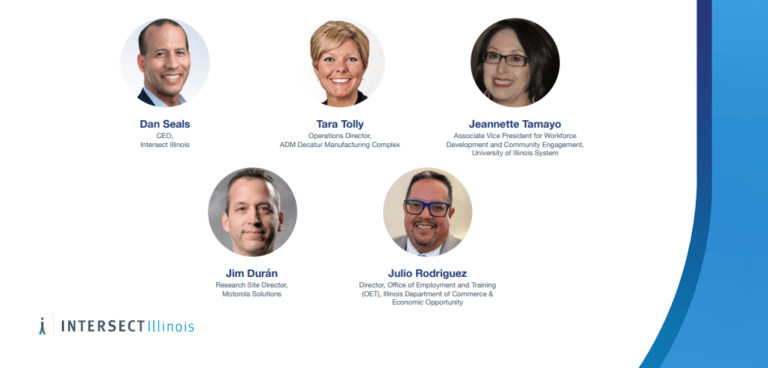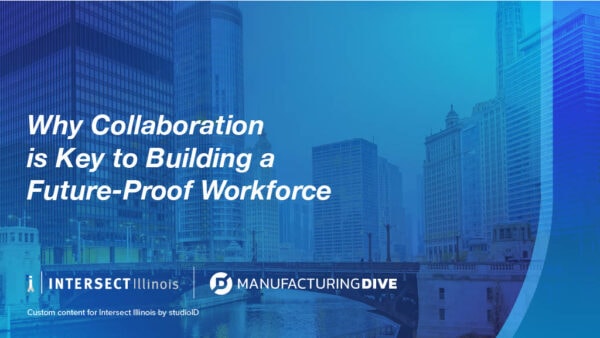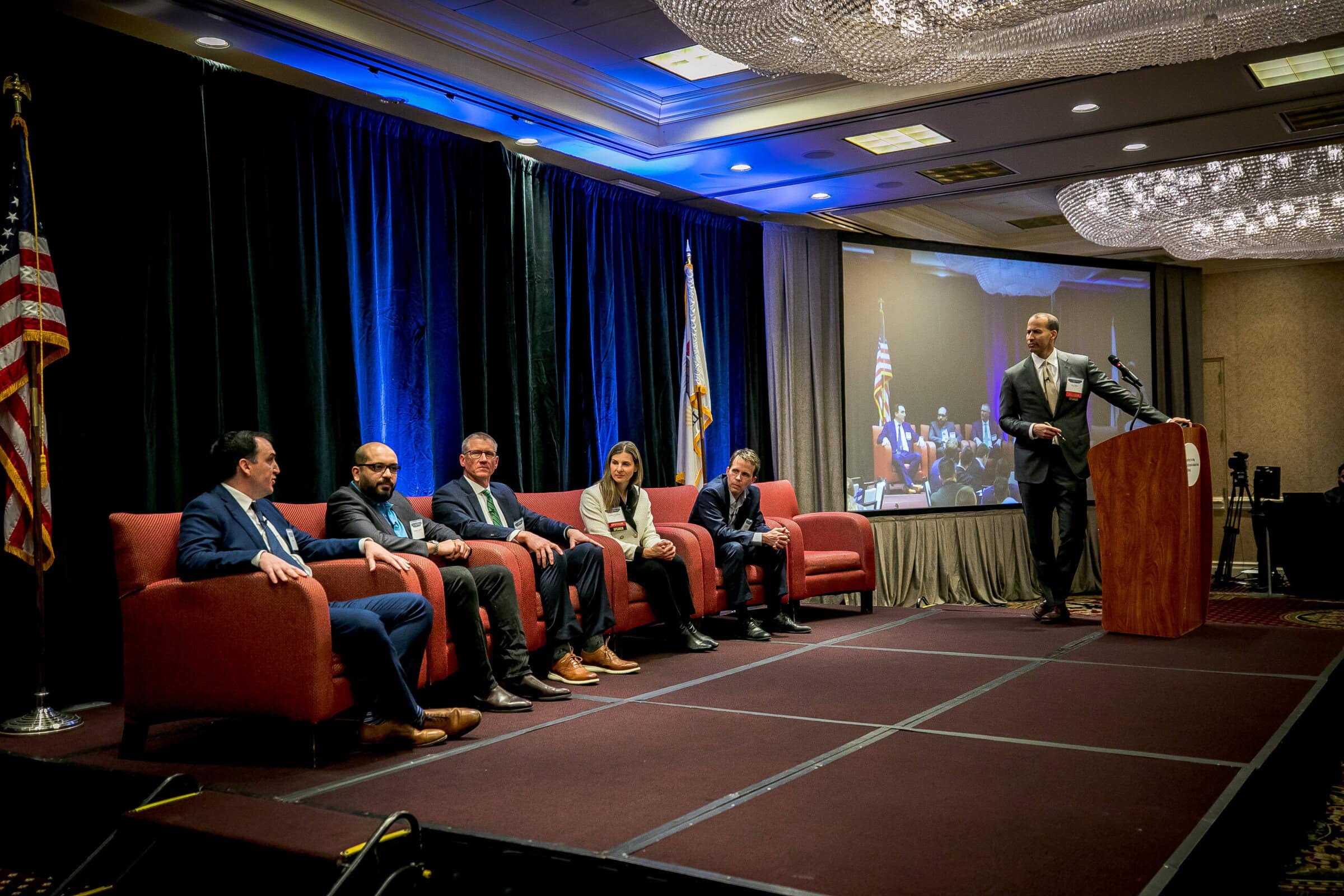How to Build a Future-Proof Workforce
February 23, 2024
The quest for a skilled workforce has become increasingly elusive for many industries. Millions of jobs are going unfilled even as workers are seeing their skills disrupted. In the face of this reality, the need for collaboration has never been clearer.
To explore key examples of how collaboration helps build a future-proof workforce, Intersect Illinois brought together experts from business, education, and government to share their experiences and insights during a recent webinar.
Intersect Illinois CEO Dan Seals hosted the discussion, which included:
- Jim Durán, Research Site Director for Motorola Solutions
- Julio Rodriguez, Director of the Illinois Department of Commerce and Economic Opportunity’s Office of Employment and Training
- Jeanette Tamayo, Associate Vice President for Workforce Development and Community Engagement with the University of Illinois System
- Tara Tolly, Operations Director of ADM’s Decatur Manufacturing Complex.
Partnering with educational institutions
The group agreed that providing businesses with a skilled, future-ready workforce needs a multifaceted approach involving partnerships with educational institutions, strong local alliances, and strategic identification of locations committed to investing in human capital.
Motorola opened an office in the Research Park at the University of Illinois Urbana-Champaign, seeing it as an important way to recruit top engineering talent and instill the firm’s core values at an early stage.
“We were noticing that our ability to attract and hire graduates coming from the school, being a top-tier school, is very competitive,” Durán of Motorola said. “If you want the right applicants you have to pursue them. One of the reasons that we value this presence here is that we can build relationships with those student organizations or key faculty and be able to participate in programs through the university because we are physically present.”
Universities with the right assets and relationships can launch students directly into corporate careers, said Tamayo of the University of Illinois, adding that the University of Illinois focuses on internships, mentorships, and peer-to-peer learning to help nurture the talent that local companies will need in the future.
“First is tapping faculty talent, people doing the basic research that will solve industry problems, but also the individuals working with industry to identify what those challenges are and then coming up with solutions and using the students as fertile ground for new ideas, innovation and partnership,” Tamayo said.
“We’re focused not only on addressing the problems that industry brings to us but we’re also looking at where industry operates in the context of their community,” she said.
Getting a leg up through apprenticeships
Communities across the country are investing more in pre-apprenticeship and apprenticeship models, said Rodriguez with the Office of Employment and Training. He cited the Chicago Apprentice Network, which supports about 1,000 apprentices across 70 companies as a good example of this.
“We have found that those are very, very successful models, partly because of the fact that they allow individuals to not only get hired right from the get-go, but it provides an environment for real career opportunities,” Rodriguez said.
“On-the-job training can provide a learn and earn environment.”
Helping your workforce grow with you
ADM’s Tolly said the agricultural giant’s long history of strong collaboration with local and statewide educational institutions has been vital to the company and the local communities. She pointed to ADM’s partnership with Illinois Fermentation and Agriculture Biomanufacturing, the University of Illinois Urbana-Champaign, and Richland Community College as an example of how partnerships can help develop curriculums that involve new technologies to ensure students are ready to enter the workforce.
“We recognize that a lot of our new talent has zero manufacturing experience,” Tolly said. “Businesses have to be committed to building their future workforce from the ground up. Being able to deliver free career experiences that grow a workforce that is competent and confident, and excited to grow with your business, has to be a priority for you.”
 “It takes a collaboration between the community, between the businesses, between the educational institutions,” she said.
“It takes a collaboration between the community, between the businesses, between the educational institutions,” she said.
View the full webinar here. To learn more about how Intersect Illinois can help your business find the right location with the skilled talent to help you grow, contact us here.




